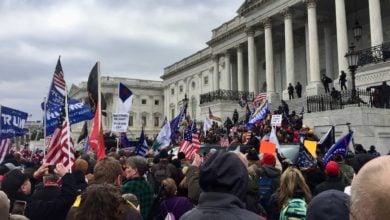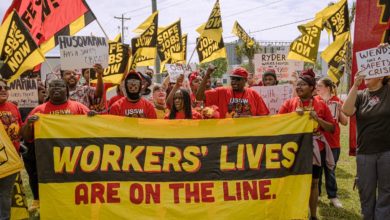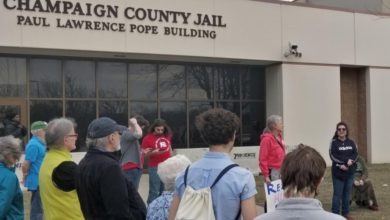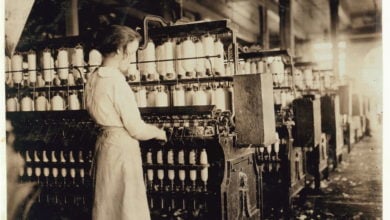News
reports indicate that some materials used by the U.S. military during
its May bombing campaign against Libya were made with the labor of
prisoners in the United States. The parts were made in federal prison
workshops run by the U.S. Bureau of Prison’s UNICOR
division.
According
to the
government’s own website about UNICOR and Federal Prison
Industries: “
Its
mission is to employ and provide job skills training to the greatest
practicable number of inmates confined within the Federal Bureau of
Prisons; contribute to the safety and security of our
Nation’s
Federal correctional facilities by keeping inmates constructively
occupied; produce market-priced quality goods and services for sale
to the Federal Government; operate in a self-sustaining manner; and
minimize FPI’s impact on private business and labor.”
A
May 20
AlterNet
article by Mike Elk points out the reality: “[T]raditionally, these
types of defense jobs would have gone to highly paid, unionized
workers. However, the prison workers building parts for these
missiles earn a starting wage of 23 cents an hour and can only make a
maximum of $1.15 an hour. Nearly 1 in 100 adults are in jail in the
United States and are exempt from our minimum wage laws, creating a
sizable captive workforce that could undercut outside wage
standards.”
The
December 2010 strike of Georgia prisoners in at least six prisons
was sparked in part by labor issues of prisoners working as virtual
slaves in prison industries.
A number of rationalizations are used to justify corporate use of prison labor.
UNICOR claims that the use of such labor keeps “inmates
constructively occupied.” Michael P. Jacobson, author
of “Downsizing Prisons: How to Reduce Crime and End Mass
Incarceration”(New
York University Press, 2005) and director
of the Vera Institute of Justice, advocates prison labor exploitation
because “you’re providing a skill for when they leave.”
(AlterNet)
Various
cities and states have jumped on the prison labor bandwagon,
according to The New York Times, which cites California, Florida and
Georgia as states that exploit prison labor and use budget deficits
to justify the practice.
In
reality, pushing
more and more state and federal prisoners into the “labor force”
is creating an internal layer of super-exploited laborers, akin to
undocumented workers who labor within the United States under
slave-like conditions. The two categories of workers differ mainly in
their legal status.
For
bosses, exploiting undocumented workers can result in fines and the
risk of their workers being deported. Hiring prison labor eliminates
these problems. Virtual slavery is legal under the U.S. Constitution
as long as the person enslaved is a prisoner. Since it is legal, more
capitalists will be enticed to use UNICOR as a way to lower
production costs and defeat trade unions while claiming to be helping
prisoners.
The
labor movement, the prisoner rights movement and prisoners themselves
must unite to challenge this effort to super-exploit prisoners,
weaken unions and drive down workers’ wages.






